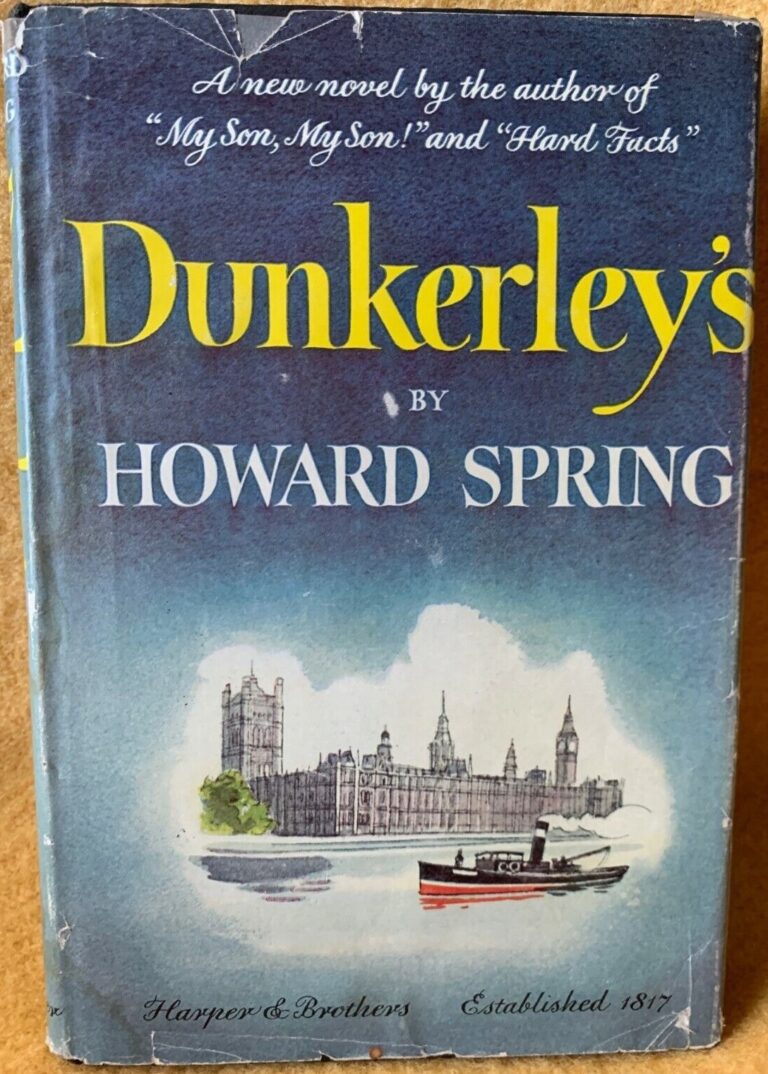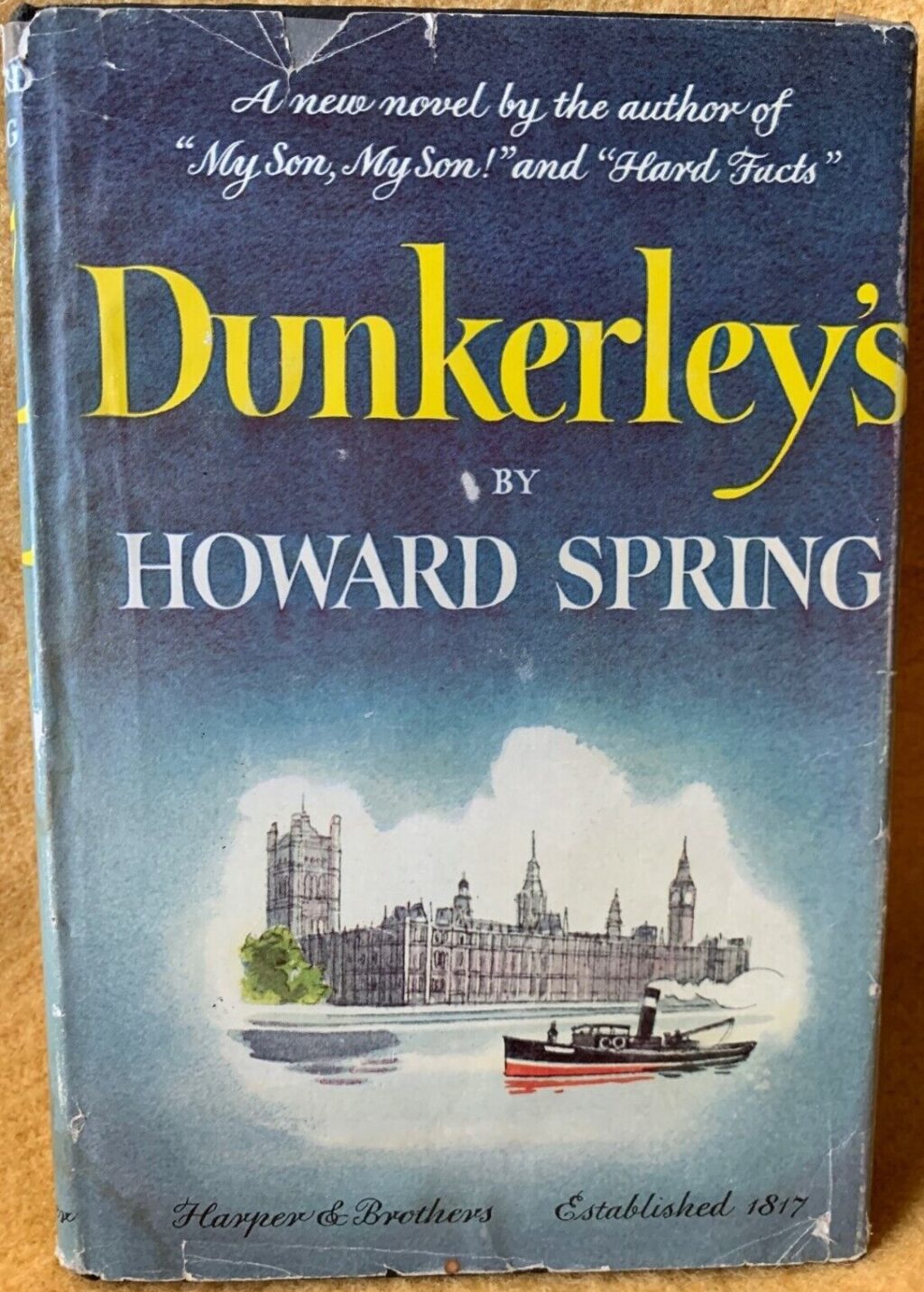Howard Spring, Dunkerley’s (1947)
There is an ongoing debate over whether Robert Menzies should be considered the ‘founder of the Liberal Party’. Given that so many people were involved in the tremendous amount of work that went on between the crushing UAP defeat of 1943 and the watershed Liberal victory of 1949, giving Menzies alone the credit is in many ways unfair.
But of all the unheralded champions of the ‘Liberal Revival’, perhaps one of the most remarkable was Menzies’s private secretary, Eileen Gertrude Lenihan, known affectionately as ‘Lennie’. At a time when an Opposition Leader’s salary was a mere £300, and consequently resources were extremely lacking, she had to do all the behind the scenes administrative work that made Menzies’s efforts to found the Liberal Party possible.
Luckily for Menzies, he could not ask to have a more qualified person in the role. Lennie had a long history of working for the most important politicians in the land, beginning in the mid-1930s when she worked for the Treasurer Richard Casey. Such were her talents, that she was soon scooped up by Prime Minister Joseph Lyons who needed a new stenographer in his office. Casey remarked that letting her go was ‘the most unselfish thing I have ever done’ – a clear testament to how much he valued her work.
Lennie worked for Lyons for the rest of his prime ministership, being promoted to his private secretary. When Lyons tragically died in office on Good Friday 1939, Menzies would succeed him as UAP Leader and Prime Minister, and in doing so he would inherit Lennie as a core member of the prime ministerial staff. The two clearly developed a very close working relationship in the difficult circumstances of the early war years, such that when John Curtin became PM in late 1941, she declined the opportunity to work for him and stay at the heart of power. Instead, she chose to follow Menzies into the obscurity of Opposition. But such was her patience and dedication that would continue with him all the way along the emotional rollercoaster that was the 1940s, once again becoming the PM’s secretary when he won back office at very end of the decade.
In September 1951, after Menzies had secured a second consecutive election victory, she decided it was finally time to move on, and so she transferred to the staff of Attorney General John Spicer. Reluctant to see her go, the PM said that ‘no man had ever had a finer secretary’.
Menzies’s daughter Heather Henderson later recalled:
‘She was a great personality, and efficient and clever. She was probably the only person since my father’s school days who had the temerity to suggest: “Perhaps a different word might be better there, Mr Menzies; what about . . . ?”
My father’s only complaint about Lennie was her tendency to kleptomania when it came to pencils. Every time she came into his office she would pick up a pencil from his desk, use it for taking dictation or making notes, then absentmindedly take it with her. One day he bought a whole new box of pencils, put it on his desk and called her in as often as possible. At the end of the day the box was empty. He called her in yet again and asked: “Lennie, where are the 24 pencils I bought this morning?” As usual in his office, life was not entirely real or earnest.
Lennie and my father suited each other well. They were both happy to work till well after midnight, but had no great love of early rising. Lennie’s successor and great friend, Hazel Craig, told me a lot about her. Hazel wondered if my father could have created the Liberal Party without Lennie. They both had enthusiasm for the project – a vital component – as well as similar working hours.
More than once Lennie worked with my father till nearly 4am, then walked from our house in Kew to her place in Hawthorn. She made all the arrangements for meetings with representatives of the organisations that eventually agreed to form the Liberal Party. The Liberal Party owes her a great deal.
Lennie once told me about her favourite piece of correspondence from her time with my father. There was a man who wrote often. Unfortunately, he had some mental affliction, and at one stage went into an asylum. When he came out he wrote, triumphantly: “Well, it’s all very well, Mr Menzies, but I’ve got a certificate to prove I’m sane, and that’s more than you’ve got.”’
It would appear that Menzies’s stolen pencils, because the copy of Howard Spring novel Dunkerley’s that survives in the Menzies Collection was once a Christmas present given to her by one of her friends. Somewhere along the line Menzies must have coopted it and forgotten to give it back – in his own bout of kleptomania.
You might also like...
Sign up to our newsletter
Sign up for our monthly newsletter to hear the latest news and receive information about upcoming events.



